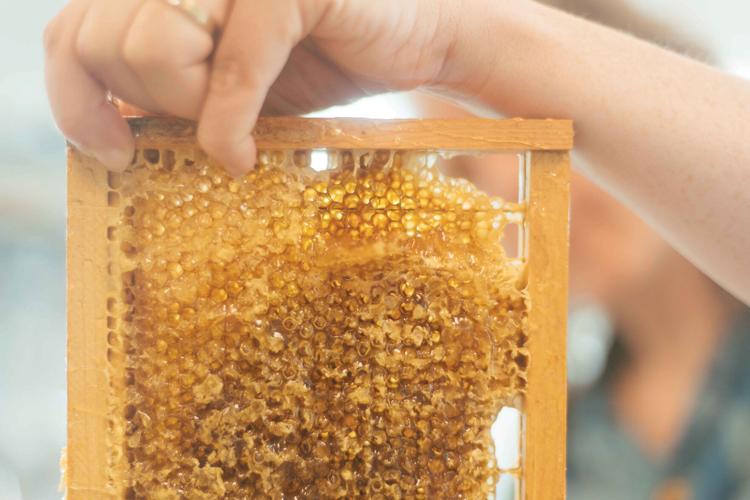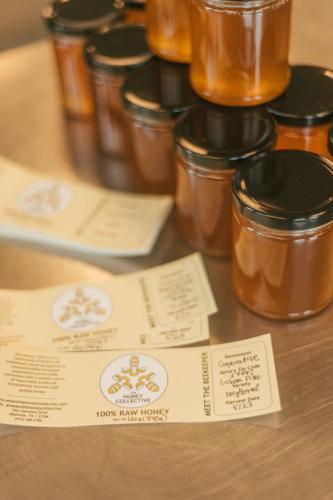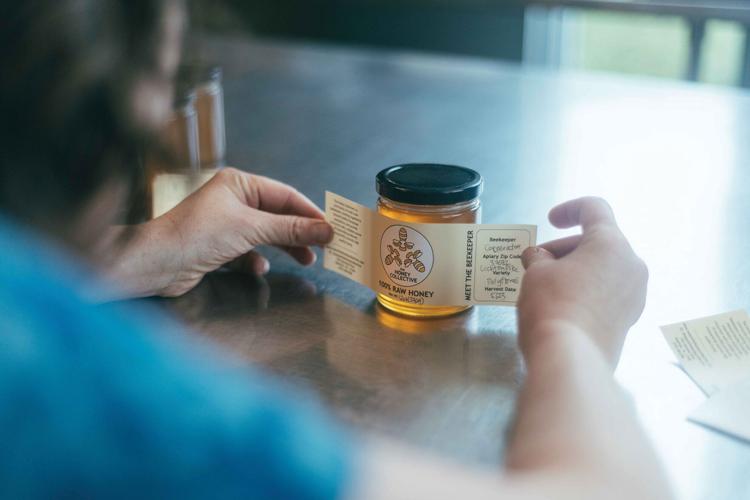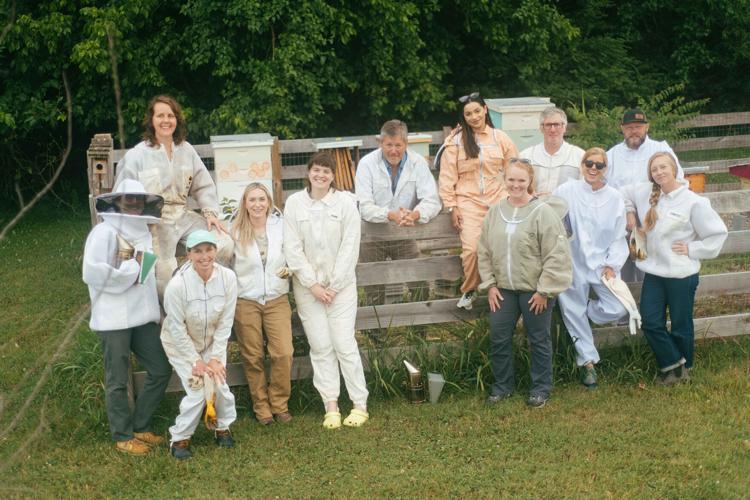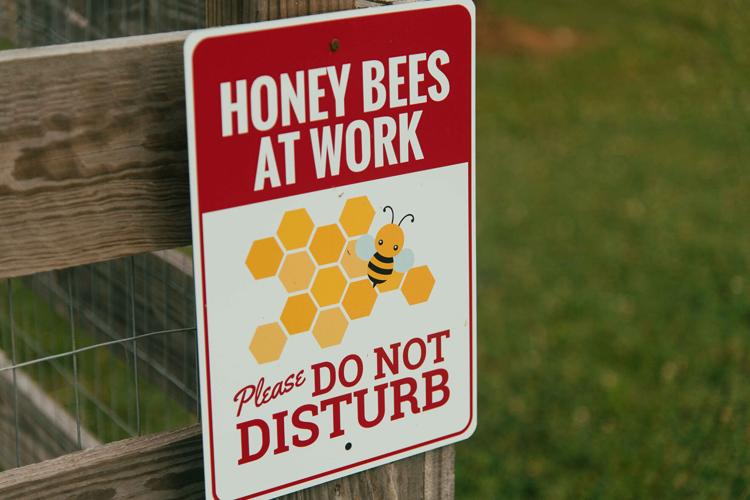
Hive maintained by The Honey Collective
In the bucolic setting of Cornelia Fort Airpark at Shelby Bottoms, birds chirp in the morning air as cattle graze in neighboring fields. Each day, groups of superorganisms get to work. Colonies of bees industriously collect pollen from grasses and plants, bringing it all back to the hive to transform into honey. Hives like those at Cornelia Fort — which are made possible through a partnership with Metro Parks — are appearing more frequently in Nashville, in part due to the diligent work of the newly formed Honey Collective.
When Honey Collective co-founder Hanes Motsinger, now acting in a business development capacity, first envisioned The Honey Collective, she was still a relative novice at keeping bees. “I took my first beekeeping class about 12 years ago because I wanted to learn more about honeybees as superorganisms,” says Motsinger. “I was curious about the role they play in bringing food to our tables, and about the ways in which I might help steward healthy pollinator populations (and their habitats) in the future. It wasn’t until about 10 years later that I got bees for the first time.”

Hanes Motsinger, co-founder of The Honey Collective
After jumping in feet first, Motsinger joined the Nashville Area Beekeepers Association. There she met co-founder Ian Dawe, who mentored her through the process of maintaining healthy hives. Together with Gretchen Trast, the pair founded The Honey Collective in 2022 to assist with apiary setup and hive management.

Honey from The Honey Collective
Dawe is a former London police officer turned professional butler. He always had a passion for gardening, and so beekeeping became an offshoot of that hobby. “I was always admiring beekeeping as part of [gardening], but also realized I wanted to have my own honey, knowing it was produced as pure honey with no artificial additives,” Dawe says, noting that most commercial honey is largely adulterated with ingredients like corn syrup and glucose.
It took time for Dawe to perfect the skill of beekeeping, but he now manages his own hives as well as hives for clients of The Honey Collective, acting as the group’s head beekeeper. On any given day, he may be found tending to a hive, planting pollinators that will help with nutrition diversity for the bees and checking on queens to ensure successful hive management. But “management,” he will tell you in a lilting British accent, is a loose term. “Bees refuse to read the manual on beekeeping and do whatever they fancy doing.”

The Honey Collective
Beekeeping has evolved in recent years. While once a hobby for gentlemen of leisure, it has now become a more inclusive space. Co-founder Trast explains the need for diversity in the field. “Beekeeping is very difficult to do in a silo, and having a community to do this with makes it even more fun and fulfilling,” says Trast. “The community The Honey Collective has tried to curate is to involve people who typically haven’t been included in the beekeeping community — young people, women and queer folks.”
But beekeeping is not without its barriers. “Beekeeping is an expensive hobby,” says Motsinger. “Everything has to be bought in bulk, but you may only need a small amount. The Honey Collective is here to offer the ability to buy smaller amounts, which creates less waste.”

Hive maintained by The Honey Collective
The work of The Honey Collective not only keeps the hobby alive through generations, but also helps support a crucial need. Since 2010, scientists have recorded significant declines in bee populations. According to a report by Utah State University, multiple factors are at work that add to the decline, including habitat loss, pesticides, poor nutrition and climate change. On average, scientists estimate, 30 to 40 percent of bee colonies in the U.S. are lost each winter to these and other factors.

Honey from The Honey Collective
The Honey Collective carefully harvests honey to ensure that each colony has at least 40 to 50 remaining pounds available for overwintering. That means the group may not harvest honey from a hive if it produced only 40 pounds in a given year. This ensures that the bees have enough honey to rely on as a food source through the winter and don’t have to depend on sugar water — a common but less healthy alternative.
Customers can purchase a regular supply of the harvested honey by signing up for the group’s “hive-to-home” Honey Share Program. While the Honey Share Program is sold out for 2023, Nashvillians can also purchase The Honey Collective’s products in locally owned shops like Well House Coffee and Bare Bones Butcher and at the East Nashville Farmers Market. The Honey Collective has also recently been accepted into Second Harvest Food Bank, where their honey goes to homes experiencing food insecurity or located within food deserts.
Pick up the July issue of our sister publication Nfocus to read a profile on a few of Nashville’s beekeepers.


